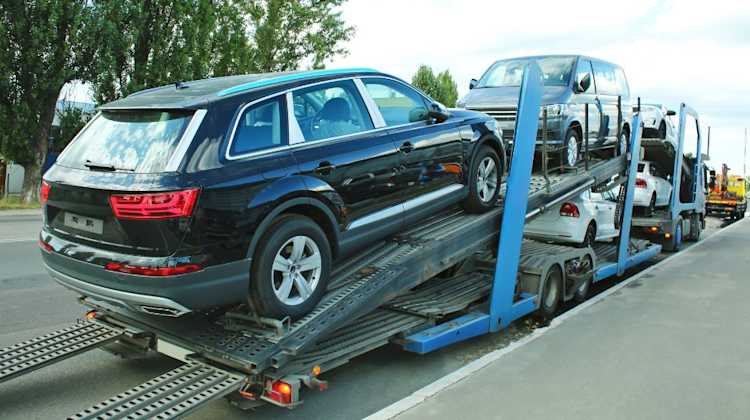Are RV Campgrounds the New Military Housing?
by Thalia Castro - April 24th, 2022

When military families PCS during a housing shortage, the options are limited. Some choose military housing if it's available. Others are adamant: they don't want to live on base. Could living in an RV solve the hosing conundrum for military families?
Where are we going to live?
Service members and their families face many challenges. One of them is figuring out where they are going to live when PCS season comes around. You may be wondering why more military families don’t live in base housing. The answer is: it’s complicated.
Although some families love on-base living, others have major reasons to avoid military housing. We explored some of those reasons in this article.
Other families do want to live on base, but simply can’t get a house. Most military housing neighborhoods have a waitlist because they can’t keep up with demand. Some waitlists are only a few weeks, while others can be over a year! It all depends on the size of your family and the number of units available at your destination. As a result, these families are left scrambling to find other housing options before they PCS.
The military housing waitlist issue leaves thousands of service members and their families stranded during PCS moves. Some live in hotels for months at a time…if they can afford it. Hotels cost hundreds or thousands out of pocket and are not fully covered by your monthly BAH (Basic Allowance for Housing) or a PCS reimbursement. Other families rely on friends and family members to host them and let them temporarily sleep on couches and air mattresses. I personally know of a family who just marked their fourth month living in a hotel in South America. This is the second time they have had a long-term hotel stay for a PCS move!
Buying a home in an extreme seller's market
Another overlooked group that has trouble securing housing is military recruiters. Most recruiting stations are hours away from the nearest base, so families must find housing in the local economy. But in today’s extreme seller’s market, it can be challenging for military families to buy or even rent a house near the assigned recruiting station.
Military members did see an increase in BAH rates in most locations, but that raise didn't begin to touch the increasing home prices across the nation.
Living in an RV is the new military housing
Service members are feeling the housing market squeeze. Military housing on base is full or otherwise undesirable. Buying a home in the local economy is more expensive than ever, with many buyers facing steep competition from all-cash buyers. And rents are increasing everywhere, with some military members unable to find housing options within their BAH.
Some service members are taking this housing crisis into their own hands, choosing to live in an RV full-time.
Living in an RV full-time has its own set of challenges, especially if you have several children and/or pets sharing the space. But in today’s wild and expensive housing market, RV living allows the service member and their family to have a roof over their heads for a predictable amount of time, and all on a budget. This security has become increasingly appealing to military families.
Of course, an RV is a major purchase, so you must do your research and have adequate money in savings. Your monthly payments may be similar to a mortgage payment, so you will want to ensure payments are covered by your BAH. If you don’t know the local BAH rates for your new duty station, use our BAH calculator here.
Once you purchase an RV and calculate your payment costs, you also need to budget for the cost of campsite reservations. Due to COVID, there was a rise in RV sales, which then caused an increase in campground reservations. While we have likely passed the trend's peak, some campgrounds continue to have waitlists to keep up with demand.
Most military bases have RV campgrounds, offered through the outdoor recreation services or MWR. These are often more affordable than off-base campgrounds but may come with additional restrictions. Some allow full-time living, but others don’t, often limiting the time of your stay to three months. After that, you must relocate–either to a different campground on base, or to one off base.
Once you move out, you can get back on a waitlist to return and reset the time again.
The benefits of living in an RV full-time
Despite the challenges listed above, there are numerous benefits to RV living that make it worthwhile for military families. When I asked my fellow military families why they chose to live full-time in an RV, these were the most common responses:
Military housing can’t keep up with the demand for available housing units.
Current cost of living in the area exceeds our BAH.
Base housing can be toxic, with black mold, rust, and other environmental toxins poisoning families.
When PCSing, it makes sense for a military family to live in an RV.
The housing market makes it hard for service members to live in the area with a reasonable commute.
Personally, we decided to live full-time in an RV because the BAH wasn’t enough to cover a rental for our family in the expensive housing market of Monterey, California. My husband was a recruiter for the Army at the time.
Now, we are stationed in Fort Bragg, North Carolina, celebrating our first year living full-time in our RV. I’m grateful for the time being that we at least have an RV to live in. Through social media and PCSgrades, I’m able to share our experience in RV living and assist other military families going through the same process.







